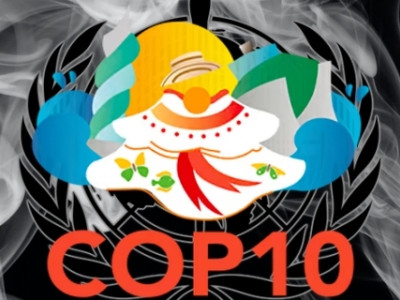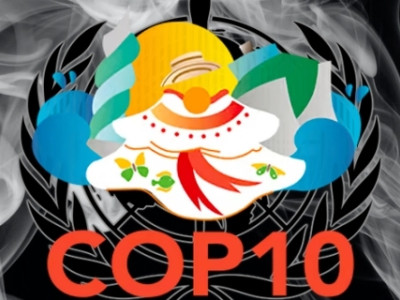Clive Bates, public health expert and former director of UK anti-smoking organisation Action on Smoking and Health (ASH), said, “We know, from a vast number of studies, that vaping is much less harmful than smoking and is replacing combustibles. Banning e-cigarettes while allowing deadly cigarettes to be sold is therefore an absurd policy.”
Bates was delivering a message at a webinar organised by the Association of Vapers India (AVI), a non-profit consumer organisation that represents the interests of 270 million tobacco users in the country.
“This ban has adversely impacted over 100 million smokers in India who have been denied their fundamental right to health, choice and better life,” said AVI member, Jagannath Sarangapani, who hosted the event.
The webinar, titled ‘The need for tobacco harm reduction in developing countries’, had speakers and panellists from across the globe, including Asia, Africa and Latin America, where 80% of the world’s tobacco users live.
“Every smoker is different, and they need all the options available for them to quit. Taking away one of the options [e-cigarettes] is going to harm people and cause death,” said Charles Gardner, former health attaché at the US embassy in India and executive director of INNCO, an umbrella body comprising 37 national consumer organisations.
Peter Dator from the consumer body, The Vapers Ph, in the Philippines, where vape regulations that provide controlled access to adult smokers while protecting minors were recently enacted, said the decision could help bring down smoking rates in his country and can be a template for other developing nations to adopt. The law creates a distinction between smoking and safer nicotine products.
Lamenting the lack of research into safer nicotine alternatives in India, Dr Jasjit Ahluwalia, public health scientist from Brown University, US, said, “Reducing harm is a well-versed idea but we have not embraced it in tobacco control because we hate the industry so much that we forget about the smokers. I was sad to learn India has banned nicotine alternatives and has even banned research into them. This is tragic. Science should inform policy.”
Harry Shapiro, lead author of the Global State of Tobacco Harm Reduction report, questioned the Indian government’s ‘protection of youth’ rationale for the ban, saying, “According to the latest Global Youth Tobacco Survey data from India, seven million school kids used cigarettes in last 30 days, while 3,000 had ever used an e-cigarette. This [ban] is therefore more about money and politics than public health.”
Many speakers also highlighted the role of the WHO and Bloomberg-funded groups in promoting bans on novel nicotine products in the developing world. Joseph Magero, a tobacco harm reduction advocate from Kenya who has worked in tobacco control, said the ideological approach adopted by the WHO is failing.
“History has shown us time and again that bans don't work. Prohibitionist policies lead to illicit markets. Rather than achieving a public health goal, banning these products pushes them underground into unregulated and uncontrolled black markets,” he commented.
Roberto Sussman, physicist and director of consumer non-profit Pro-Vapeo Mexico, expressed solidarity with e-cigarette users in India, saying, “We are in a comparable situation as the government agencies are spreading misinformation on vaping. But we have to keep pushing back and, despite a sales ban, there is a grey market here and people know vaping is a less harmful substitute.”
Nancy Loucas, executive director of CAPHRA which unites tobacco harm reduction advocates in the Asia Pacific, shared a positive outlook: “There is reason to be optimistic. The wave of acceptance for harm reduction is starting from the east and moving west – beginning in New Zealand, moving to the Philippines, with Indonesia and Malaysia now also looking at regulatory frameworks, and there are discussions in Thailand too about reversing its ban. But India needs to be the touchstone for wider change globally. In time, we will get there.”
References:
- Association of Vapers India – www.vapeindia.org
- AVI on Twitter – www.twitter.com/vapeindia
- Webinar - https://youtu.be/8kOCYwh57Uo
Photo Credit:
Photo by Joshua Olsen on Unsplash
Dave Cross
Journalist at POTVDave is a freelance writer; with articles on music, motorbikes, football, pop-science, vaping and tobacco harm reduction in Sounds, Melody Maker, UBG, AWoL, Bike, When Saturday Comes, Vape News Magazine, and syndicated across the Johnston Press group. He was published in an anthology of “Greatest Football Writing”, but still believes this was a mistake. Dave contributes sketches to comedy shows and used to co-host a radio sketch show. He’s worked with numerous vape companies to develop content for their websites.
Join the discussion
COP10: Use The Evidence
The Coalition of Asia Pacific Tobacco Harm Reduction Advocates demands an evidence-based approach to tobacco harm reduction from the World Health Organisation and the Framework Convention on Tobacco Control
Exclusionary Tactics Criticised
Global tobacco harm reduction advocates have criticised the WHO’s exclusionary tactics at COP10, the Framework Convention on Tobacco Control conference starting today
Kiwi Progress
New Zealand is celebrating a significant reduction in smoking rates, prompting positive commentary from Emeritus Professor Robert Beaglehole
The Great POTV 2023 Round-up Part 4
Managing to keep up? By now the mince pies will be sitting heavy and the thought of turkey leaving you nauseous. Relax and plough through the final three months of 2023 on POTV with some antacids












